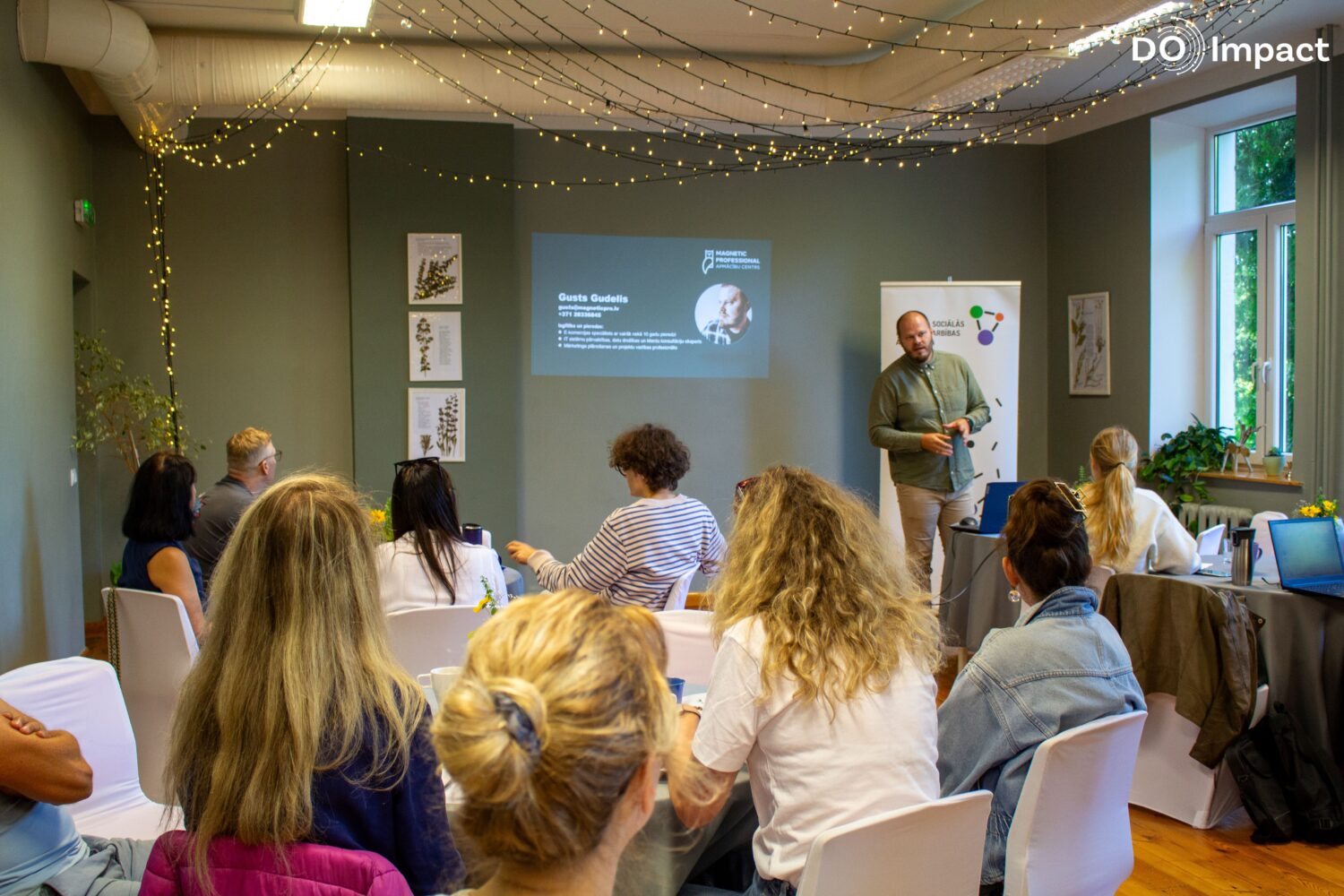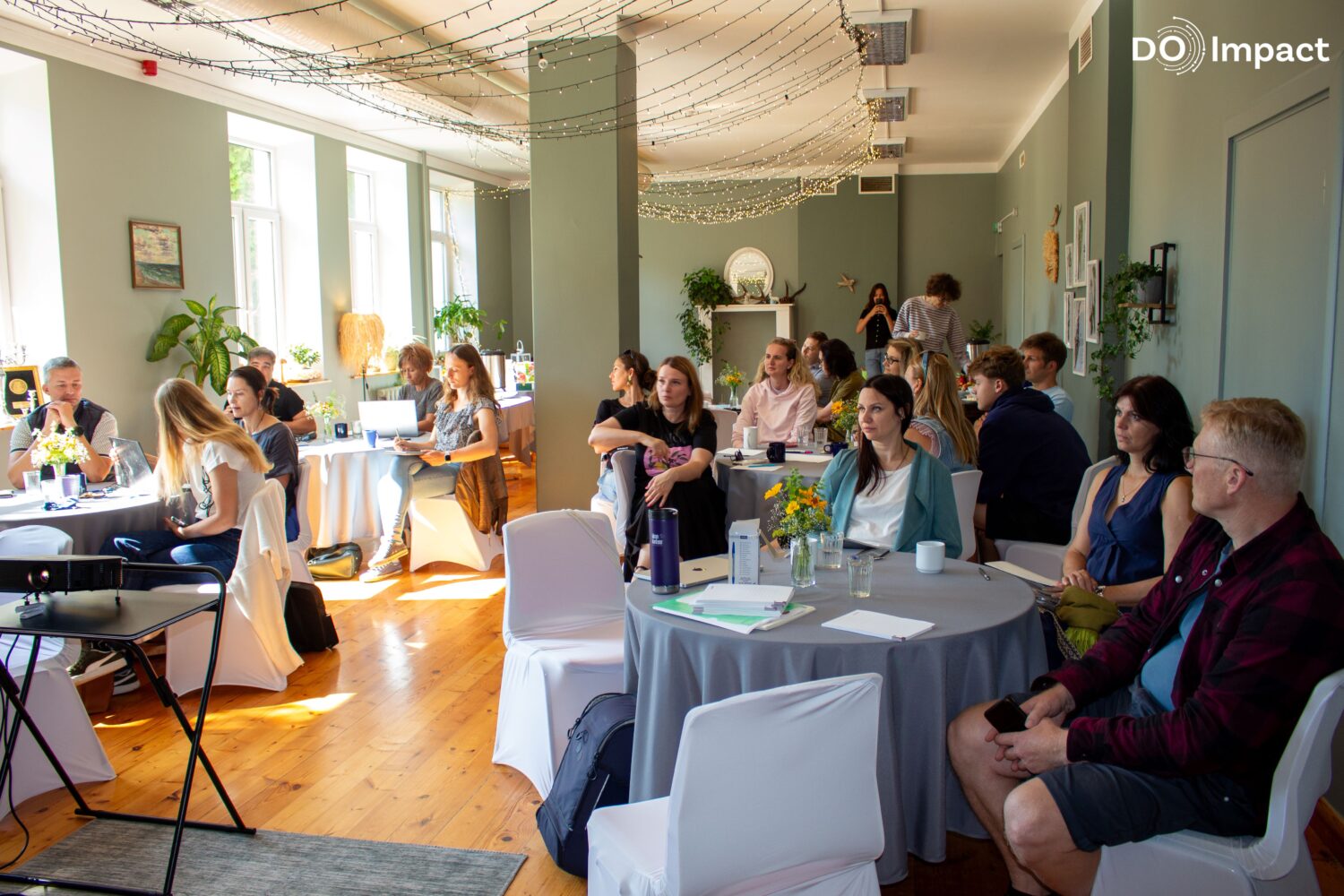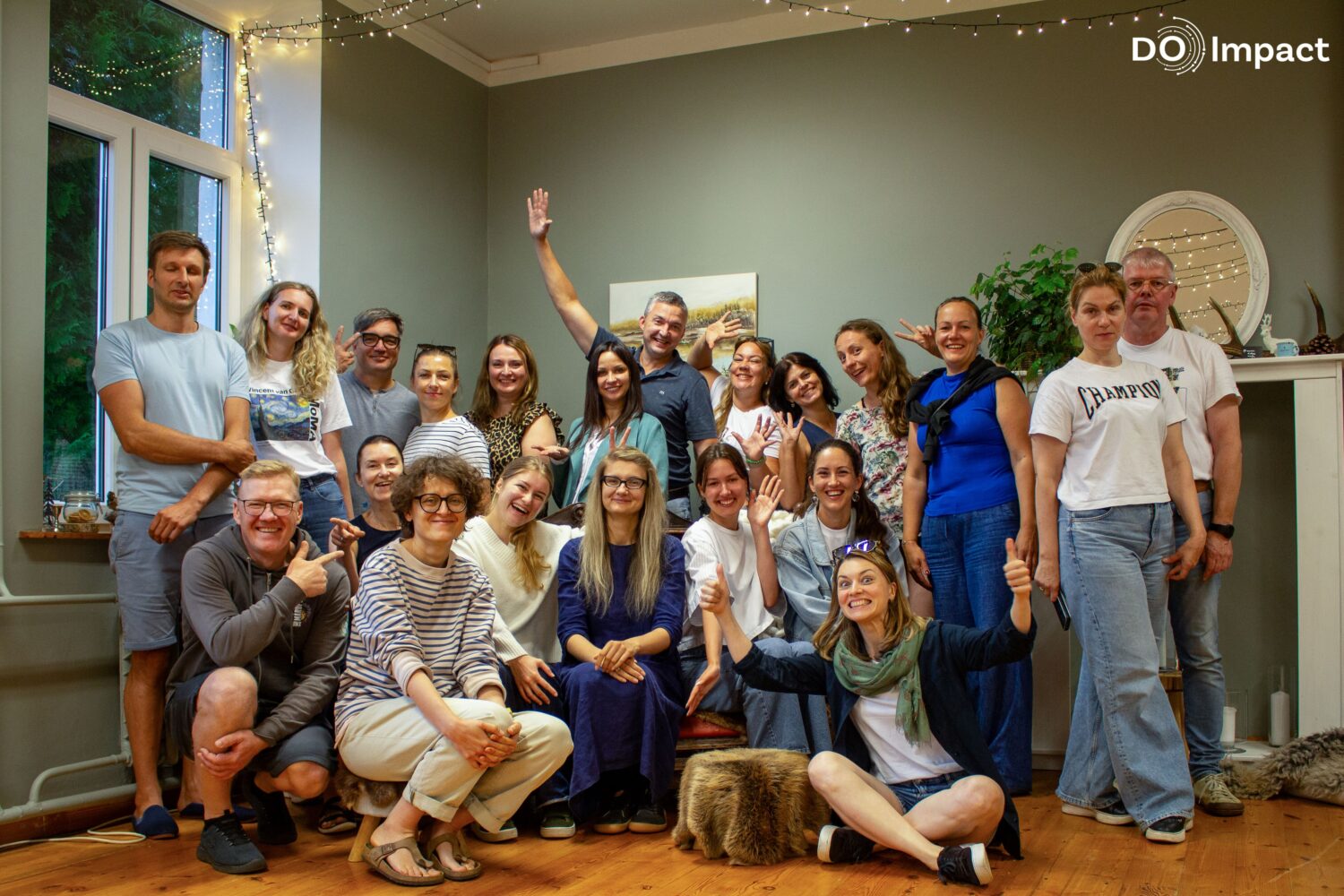Blog author: Social Entrepreneurship Association of Latvia (SEAL)
While some begin a new month with routine tasks, Social Entrepreneurship Association of Latvia members started theirs by exchanging ideas, engaging in collaboration, and exploring how digital transformation and artificial intelligence can enhance their work.
Over the course of two days (1 and 2 August 2025), during the first and second local workshops organised under our Digital Program in Latvia, social entrepreneurs examined how technology—when applied strategically—can streamline operations, improve efficiency, and create new opportunities for impact.
Rethinking Digital Transformation
The first day programme opened with a presentation by Elviss Brauns, who offered a broader perspective on the concept of digital transformation. He emphasised that it involves far more than replacing paper-based processes with digital tools or upgrading software. True transformation entails rethinking the business model, prioritising impact, reshaping organisational culture, and redefining client engagement.
Elviss Brauns was urging social entrepreneurs to focus their digitalisation efforts on repetitive, time-consuming, and manual processes. However, poorly chosen tools can complicate workflows. The essential first step, therefore, is to clearly define the problem before selecting a technological solution.
Participants worked in groups to: identify the most time-consuming processes, map the individuals involved in each process and determine which data is most difficult to measure. These findings formed the basis for an evaluation of which problems were the most challenging to resolve, and which offered the greatest potential benefit if addressed. Impact-versus-effort analysis is a critical step for any organisation considering digital solutions.

Practical Tools for Social Entrepreneurs
The session also highlighted a selection of tools relevant to the needs of social entrepreneurs:
- Client Management: Non-Profit Cloud, CiviCRM
- Point-of-Sale and Queuing: LMT Smart Cash Register, AMRO Queue Management System
- Internal Processes: Trello, Slack
- Scheduling and Meetings: Calendly, Doodle
- Website and Application Development: Lovable, Replit
A notable example was THEO Growth—an AI-powered platform designed to organise scattered company data into a structured format, enabling AI tools such as ChatGPT, Claude, and Gemini to produce accurate, brand-consistent content with significantly fewer revisions.

Artificial Intelligence in E-Commerce
The second day, led by Gusts Gudelis, focused on the AI, analytics and digital tools for impact-driven organisations, especially the application of AI in e-commerce. The session introduced participants to a range of AI tools, including:
- ChatGPT – conversational AI from OpenAI
- BERT – Google’s natural language model
- DALL·E – AI image generation
- YOLOv8 – object detection by Ultralytics
- designer.microsoft.com – Microsoft’s design and visual creation platform
Gudelis illustrated practical AI use cases such as smart home automation, personal assistants and voice control, personalised recommendations, and enhanced customer service. He urged social entrepreneurs to think creatively on how these tools can help social enterprises achieve their impact.
Key Considerations for AI Use
The sessions concluded with several important reminders: AI is not human; it may produce grammatically incorrect or illogical text. While AI systems aim to avoid bias, stereotypes may still occasionally appear. AI is a collaborative tool—it works alongside humans rather than replacing them.
In working with ChatGPT, he advised:
- Providing clear, well-defined instructions
- Maintaining an ongoing dialogue, asking follow-up questions
- Supplying detailed context for improved results
Expert addressed a common myth: : Can AI become fully self-sufficient? The answer is no — AI operates strictly within predefined algorithms and learned models, without independent consciousness or decision-making ability.
Across both workshop days, a consistent message emerged: technology delivers value only when it addresses clearly defined needs. For SEAL members, the event provided both the strategic framework and practical resources to implement digital transformation and AI in ways that genuinely enhance social entrepreneur work.

